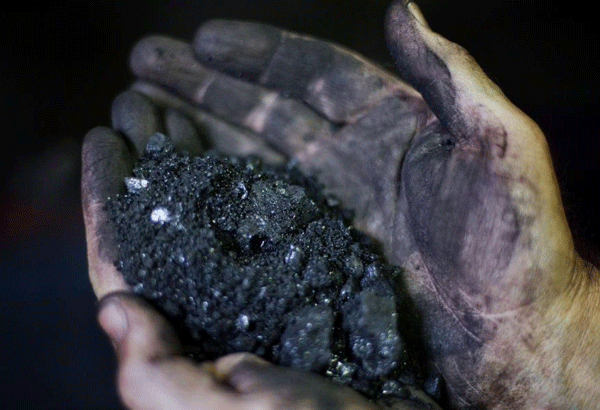Moving mining forward: Proposed actionable solutions

It is a challenge to the mining sector to police their own ranks in order to show the government and the people that responsible stewardship of the environment and mining are not contradictory. Philstar.com/File photo
(First published Aug. 31, 2017, 10:08 a.m.) After the rejection of Gina Lopez as the Department of Environment and Natural Resources secretary, the mining industry must have thought that the worst was over, especially when the current DENR Secretary Roy Cimatu took a more sober stance.
President Rodrigo Duterte’s second State of the Nation Address, however, rocked the industry once again and perhaps signaled that the miners’ woes are far from done. In that SONA, the administration’s environment agenda appeared to focus on mining, as Duterte minced no words in hurling criticisms against certain mining operations perceived to be destroying the environment and the livelihoods of farmers living in the nearby communities.
Striking in that portion of the speech, however, was the clear reference to a television show hosted by a popular broadcaster, and aired by a local network owned by the family of the erstwhile DENR secretary.
Indeed, PBEST has been pushing the industry to veer away from the business as usual and practice genuine responsible mining. It is our challenge to the mining sector to police their own ranks in order to show this government and the people that responsible stewardship of the environment and mining are not contradictory, and that the activity has a legitimate place in the Philippine socio-economic context, similar to any other industry. There is no better way to counter the negative perception and propaganda than by exhibiting the proclaimed responsible mining.
To contribute to the initiative towards responsible mining, Stratbase ADR Institute worked with Dr. Carlos A. Arcilla, a renowned geologist from the University of the Philippines National Institute of Geological Sciences (UP NIGS). Arcilla, who has extensive academic and industry experience, wrote a policy paper titled “Mining in the Philippines: Problems and Suggested Solutions.” As the title suggests, Arcilla outlined actionable solutions which the government and the industry should take into consideration.
Using an endpoint perspective
Arcilla, in establishing the proposed solution, observes that: “[M]ining feasibility is more often viewed largely from a net present value (NPV) point of view.” The author explains the shift to an endpoint perspective as: “This means visualizing the final mine rehabilitation; the disposition of water, waste and tailings; and sustainable communities. This perspective … will employ exhaustive proactive methods in the beginning of operations (e.g., thorough mineralogical characterization of ore and waste), rather than playing catch-up later on, when the costs of mitigation and remediation will then be prohibitive.”
Separate Environmental Management Bureau from Mines and Geosciences Bureau
Arcilla lays down his premise by pointing out that: “Within the current structure of the DENR, the agency responsible for giving and supervising mining tenements (MGB) and the agency responsible for managing the environment (EMB) report to one Secretary.”
For the author, the situation becomes controversial due to the fact that: “As the Secretary of the DENR is typically a political appointee, it is possible to have a situation wherein a project with poor environmental credentials still goes ahead if the mining proponents have political clout.”
Arcilla posits that: “Having an independent EMB analogous to the Commission on Audit strengthens the protection for the environment: if a project is found, ab initio, not to be environmentally responsible, then it cannot advance even with a very positive NPV.”
Revenue sharing: An in-depth study needed
Arcilla believes that the root of the revenue sharing issue stems from mining companies having varied business models. He elucidates that: “Most nickel companies, for example, ship their ores directly; gold companies process their metal completely; and copper miners process them into concentrates and export the concentrates (except those selling to Philippine Associated Smelting and Refining Corporation-PASAR).”
Thus, Arcilla calls for an “exhaustive study that considers these complexities and strikes a balance in imposing taxes is needed—too many taxes will kill the industry whereas too little gives windfalls.”
A big step, according to the author, is requiring mining companies to participate in the Extractive Industries Transparency Initiative (EITI) because an “overriding principle in revenue sharing is transparency, so as to reduce discretion given to regulators that could be a potential source for corruption.”
Increase LGU revenue share, allow mining companies to pay the LGUs directly
Arcilla justifies this proposal, thus: “Revenues from excise taxes should be shifted substantially towards the LGUs (more than 50%) and away from national government. The LGUs bear the brunt of the impacts of mining and they should proportionately share more in the sharing of tax revenues. This is an application of subsidiarity in the distribution of needs. The sharing itself, even more importantly than the actual percentages, must be done immediately, so as to have temporal cadence in the disturbance of mining and its benefits to the people most affected.”
The author’s other proposals include encouraging value-adding and the vertical integration of the mineral industry on the premise that minerals are part of the national patrimony, and so the State must ensure that the people benefits from resource exploitation.
Lastly, Arcilla draws attention to valuable elements, such as scandium, in directly exported ores. He believes that there should be further research and close scrutiny on this matter as we ought to maximize the minerals of our country.
Lawyer Lysander Castillo is an environment fellow at the Stratbase-ADR Institute and the secretary-general of Philippine Business for Environmental Stewardship, or PBEST.
- Latest


























